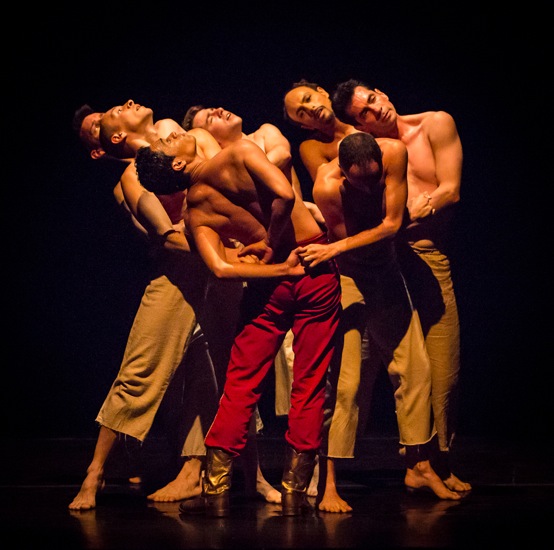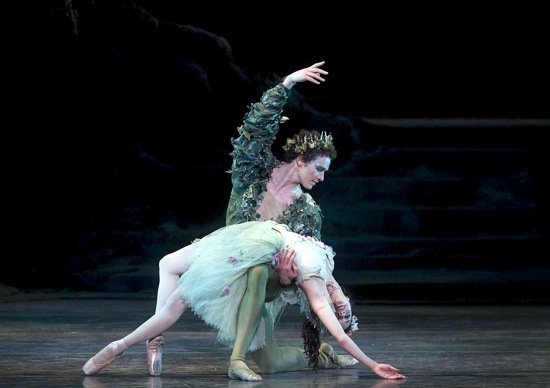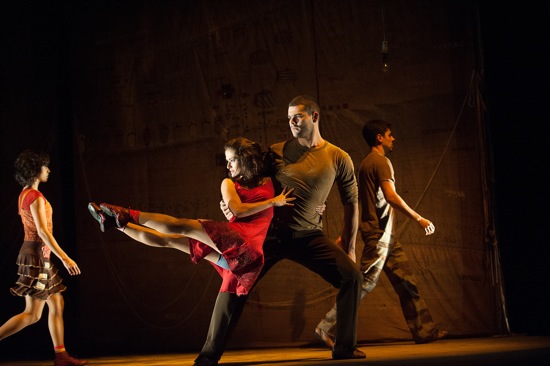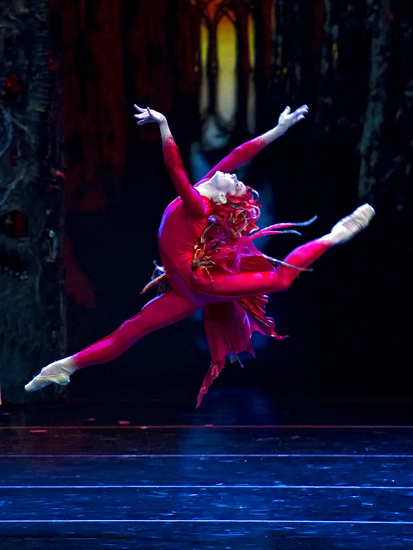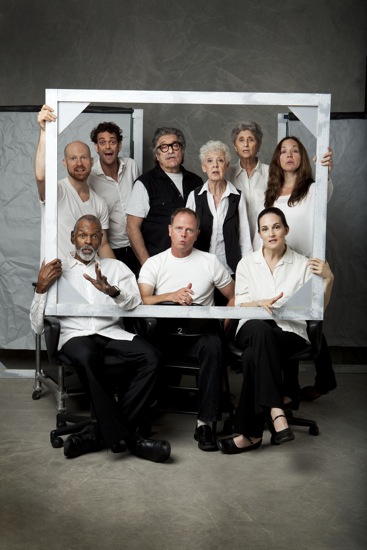A man in a fancy military jacket—gold epaulettes and all—sits slumped on an outsized throne. Six men creep in warily, circle him, bow mockingly, jump about, seem to confer. The man doesn’t move. This is how José Limón’s The Emperor Jones begins. Limón choreographed the dance, based on Eugene O’Neill’s play of the same, in 1956, to a turbulent commissioned score by Heitor Villa-Lobos. The décor and … [Read more...]
Archives for June 2012
Astray in Summer Dreams
If you can’t see a production of Shakespeare’s play A Midsummer Night’s Dream in a woodland setting during a long June twilight, as I once did, you can be enthralled by a different sort of magic conjured up by the Bard’s plot. George Balanchine’s 1962 ballet of the same name ended its week in the New York City Ballet’s season before American Ballet Theatre hit the solstice dead on with Frederick … [Read more...]
My Hand, Your Head, Por Favor
The man leads. Right? In the social and ballroom dances of Europe and the Americas, the man always leads. Still, when you watch couples who are adept at, say, the Argentinian tango or the Viennese waltz, the man and his partner seem so bonded that you can envision them as complicit equals. Never mind that his right hand pressing on her back and his left arm pulling at her right arm are guiding … [Read more...]
Flaming Magic and Goofy Girls
One of the most surprising things about American Ballet Theatre’s new Firebird is how Russian it isn’t. When Serge Diaghilev commissioned 27-year-old Igor Stravinsky to write his first ballet score, one of the impresario’s continuing aims was to acquaint Paris with Russian music and culture. L’Oiseau de Feu premiered in 1910 with a wandering Tsarevitch as its hero and a magic bird as its … [Read more...]
Does My Beginning Match Your Ending?
Ever since the 1970s, David Gordon has been educating us into seeing that there are always two sides to everything (perhaps simultaneously), that repetition can reveal change, that words are devious game-players, and that you could be your own grandma. In his dance-theater works, where process and product often dance in lockstep, a performer may comment on what she/he—or another performer—is … [Read more...]

